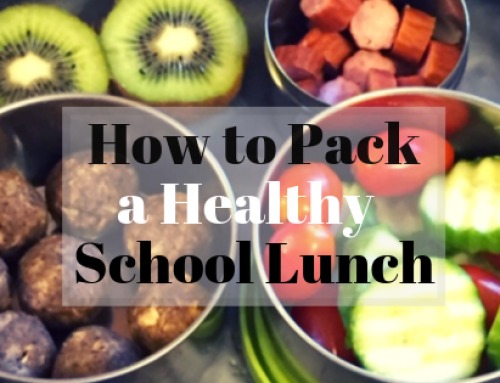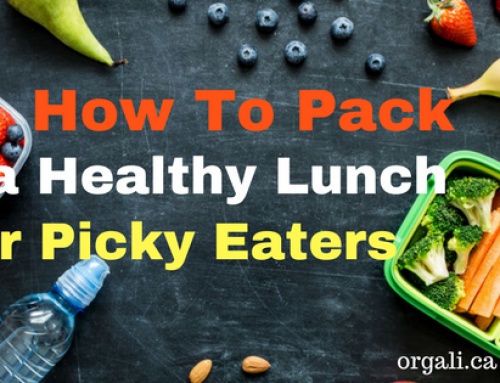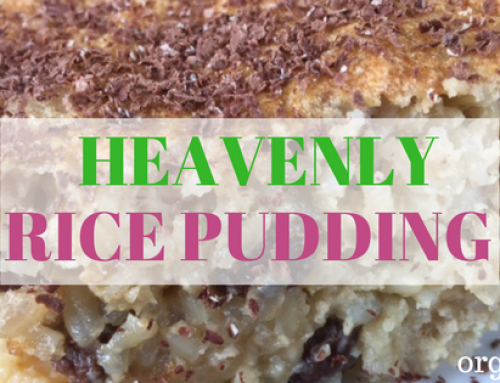Today I am sharing with you one of the best nutrients that our children’s brains need for proper functioning. And what better time to talk about brain nourishment than right before school starts?
Next week, many children (including my eldest who is 5 years old) start school. As parents, we strive to ensure that our children get the right meals and snacks to keep them well nourished, healthy, and happy.
So today we are talking about omega 3 fatty acids which every child needs every day.
When I was pregnant with each of my children, I made sure to get enough omega 3 fatty acids from my diet and from supplements for both myself and my future baby. After my children were born, I continued to feed my family lots of foods rich in omega 3. We also all take a DHA and EPA supplement (more information on DHA and EPA is below) each morning to make sure that our body gets enough of these valuable healthy fats.
What are omega 3 fatty acids?
There are three important omega 3 fatty acids:
- ALA (alpha linoleic acid)
- DHA (docosahenaenoic acid)
- EPA (eicosapentaenoic acid)
Our bodies need all three of these omega 3 fatty acids (ALA, DHA, and EPA) to function properly.
ALA
Our bodies cannot make ALA, so we must get ALA from our diet. Since our bodies cannot make it, ALA is an essential fatty acid.
We get ALA from foods such as:
- Hemp seeds
- Hemp oil
- Chia seeds
- Flax seeds
- Flax oil
- Walnuts
- Walnut oil
- Leafy green vegetables such as spinach
- Brussel sprouts
- Cauliflower
- Tofu
DHA and EPA
Our bodies can convert ALA into DHA and EPA, but this conversion can be inefficient if:
- Our diet has too much omega 6 (found in sunflower oil, soybean oil, safflower oil, corn oil)
- We are deficient in vitamins (B3, B6, and C), and minerals (zinc and magnesium)
DHA and EPA are conditionally essential, which means that they can become essential in certain conditions. If our bodies inefficiently convert ALA into DHA and EPA or if we don’t get ALA from our foods, then we need dietary sources of DHA and EPA to ensure that our body gets its needed EPA and DHA. In these two situations EPA and DHA become essential fatty acids.
We get EPA and DHA from foods such as:
- Wild salmon and other type of seafood such as sardines, shrimp, herring
- Seaweed
- Free range eggs
- Some fermented foods such as tofu
- Dairy (cheese, milk, yogurt) from free-range and pasture-fed animals
- Meats from free-range or pasture-fed animals
A short way of saying all the above is that in order for us to get essential omega 3 fatty acids is to eat plenty of the foods from the two lists above.
Why are omega 3 fatty acids important?
Omega 3 fatty acids are beneficial to us in many ways. A lot of research has been done (and is still ongoing) regarding omega 3 fatty acids. More research is needed to fully understand the benefits of omega 3 fatty acids.
Some of the benefits of omega 3 fatty acids shown by the research so far are:
- Aids proper brain development
- Aids proper brain function related to learning ability, memory, reading, spelling, attention, visual perceptive capacity
- Improvement of symptoms of autism spectrum disorders
- Role in prevention and treatment of depression
- Role in prevention and treatment of dementia
- Role in prevention of cardiovascular disease
- Anti-inflammatory role in inflammatory diseases such as:
- Asthma
- Allergic rhinitis
- Atopic dermatitis
- Inflammatory bowel disease
- Rheumatoid arthritis
What foods rich in omega 3 fatty acids need to be included in our diet?
The first list above includes ALA rich foods and the other list includes EPA and DHA rich foods.
What about omega 3 fatty acids as supplement? How to choose one?
If you consider that your child’s diet does not have enough foods rich in omega 3 fatty acids, giving them a daily supplement will help. However in my counselling I advise my clients to get omega 3 fatty acids primarily from foods. Foods rich in omega 3 fatty acids should be a daily part of our children’s meals and snacks.
There are many supplements for children on the market; you just need to find the one that works for your child. Some are soft gels, others are liquid, and others are in gummy form. Some omega 3 supplements are flavoured.
When you choose an omega 3 fatty acid supplement for your child, make sure it was molecularly distilled. This information is written either on the bottle of the supplement or on the website of the company that manufactures it. A molecularly distilled supplement will be free (or almost free) of contaminants such as heavy metals, dioxins, PCBs, and many others.
Ideally the supplement should contain EPA and DHA so that no conversion (see the explanation under the “EPA and DHA” heading above) needs to be done by our bodies.
Omega 3 oil is very susceptible to oxidation so make sure that the oil you buy is fresh and stored in the fridge to preserve its freshness. Liquid supplements should be consumed within approximately 4 weeks after opening.
What dose of omega 3 fatty acid supplement to give to a child?
The needed dose of omega 3 fatty acids varies greatly as every child has unique needs (presence of a particular disease, age, type of diet, etc.). However, a good start is to give your child 500 mg DHA and EPA daily. The supplement should be taken with a fatty food for better absorption.
What do you do to ensure that your child’s brain gets enough nourishment?
Sources:
Omega 3 and major depression: a review http://www.ncbi.nlm.nih.gov/pubmed/25142194
Is there a role for fish oil in inflammatory bowel disease? http://www.wjgnet.com/2307-8960/full/v2/i7/250.htm
Diet and allergic diseases among population aged 0 to 18 years; myth or reality? http://www.ncbi.nlm.nih.gov/pmc/articles/PMC3798911/
A review of traditional and novel treatments for seizures in autism spectrum disorder: findings from a systematic review and expert panel http://www.ncbi.nlm.nih.gov/pmc/articles/PMC3859980/
Does consumption of LC Omega-3 PUFA enhance cognitive performance in healthy school-aged children and throughout adulthood: evidence from clinical trials http://www.ncbi.nlm.nih.gov/pmc/articles/PMC4113767/







Leave A Comment